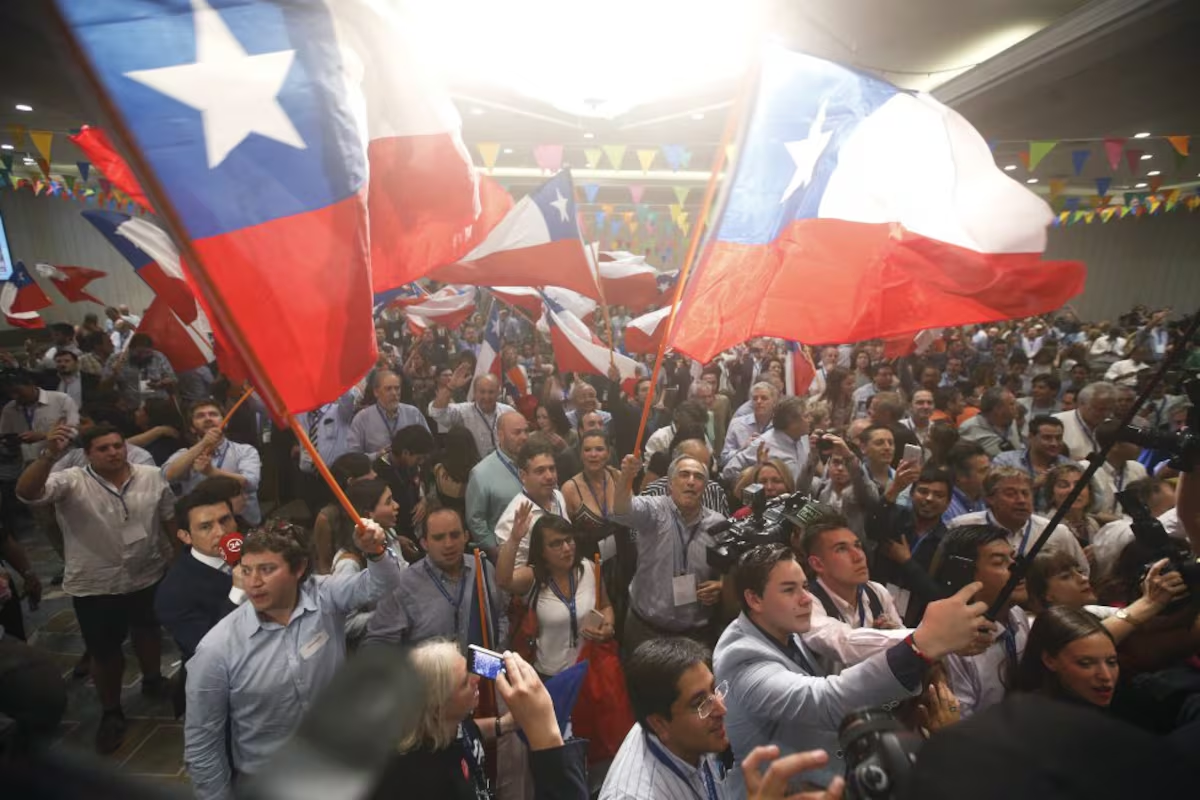
Barring a last-minute miracle, Chile Vamos will once again be eliminated from the second round of the presidential election.
While the congressman’s results may partially alleviate the presidential failures of the past two years, it is still surprising that the conglomerate that rose to the presidency twice has become exhausted so quickly. After the death of Sebastián Piñera, Chile Vamos lost what held the conglomerate together: leadership that imposed order despite internal tensions. Although Piñera was not loved by everyone and was often in conflict, his appearance served as an axis of gravity. Without him, each party returned to its own affairs, and what appeared to be a common project turned out to be an alliance of convenience.
But it all leads to thinking that the problem is deeper than the absence of references. What do UDI, RN and Evopoli stand for today? If you took an average activist from each of them, would they tell you what their project is about and what country they are aiming for? It would certainly be unfair to attribute this attrition and lack of definition solely to the current directives. The problem has been around for a long time.
Chile Vamos currently has three promises: management experience, technical rigor, and the ability to manage agreements. The problem is that all three are ultimately means to an end. They don’t answer the fundamental question: “Why?” Experience will be helpful if you have a destination. This technique works if you have a clear goal. Agreements are useful when you have a project to champion. But without substantive content, it’s like having the right tools without knowing what to build.
UDI is facing a split that began several years ago. That’s when the toughest practical sectors stopped speaking the same language. For this reason, it is the political parties that face the greatest tension, an existential tension, regarding Sunday’s outcome. Unions are not only angry at the Republican Party’s symbolic appropriation of Jaime Guzmán, but also their failure to show what is different about him, what his reason for being alongside Kast is, and what he adds to the political picture.
Meanwhile, Renovación Nacional continues to haunt the specter of internal divisions, with each faction fighting for its own side. Today’s parties look like a collection of fiefdoms without greater coordination. Similar accusations may be leveled against UDI. Beyond the agenda of Osandon, Desbordes, Galilea and Nuñez, what do they advocate? Finally, Evopoli, born with the promise of liberal renewal, never quite got off the ground. With the exception of individual figures, the party faces electoral irrelevance. “Modern, liberal” approaches to rights did not work. The irony is that the revolution in this field came not from those who promised modernization, but from the Republican Party. Despite all this, this sensibility is the center of gravity of Massey’s candidacy, and the results are visible. By the way, this does not exclude the mistakes of the candidates themselves. Ultimately, it is the candidate who chooses who to listen to.
And the contrast with the Republican Party is becoming clearer. The Republican Party has a distinct, if not unproblematic, conservative, perhaps nostalgic, project. His voters know what he stands for. Chile Vamos, on the other hand, provides competent management without disclosing reasons, with a few exceptions. In an age of polarization, moderation without content will not sell, and worse, it will not help govern.
Evelyn Massey perfectly embodies this dilemma. He has undisputed experience, technical rigor and conversational ability. But when it comes to the question of what kind of state model he would defend, the answer is either general or represents a quasi-liberal policy. Add to this the strategic fluctuations that forced us to comment on changes in spokespeople, emphasis, and stories, obscuring the objective part of the campaign.
None of this is meant to ignore moments when the centre-right made decisive and visionary contributions, such as the November 15 agreement, the management of the pandemic, the security law that the left did not want to approve, and pension reform. Unfortunately, these glimpses could not be integrated into a larger project.
The question is not whether Chile Vamos will survive this new electoral upheaval. It will probably maintain some form of presence in Congress. The question is whether it can become meaningful again without first answering what it means, beyond efficient management. Because in a democracy it is not enough to know how to govern. We must know why we govern. And the answer is still not available to Chile Vamos, even considering recent presidential candidates.



